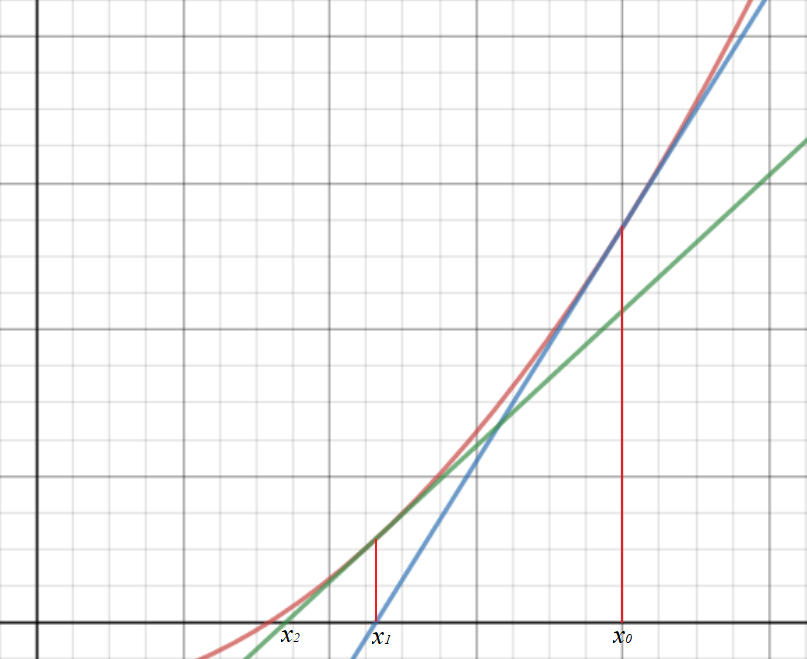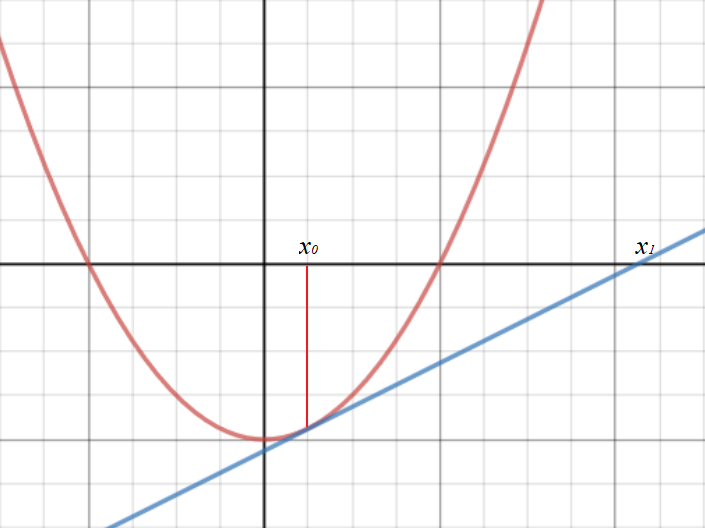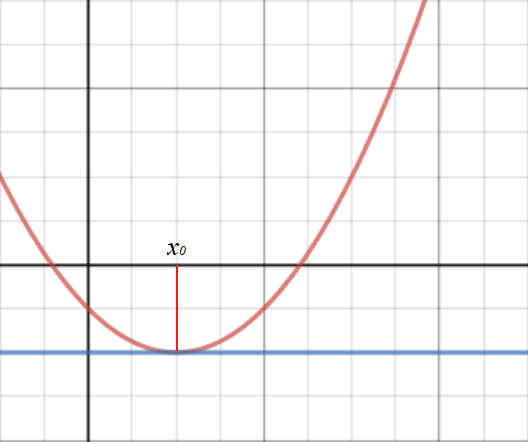9.3 The Newton-Raphson method
The Newton-Raphson method can be used to find numerical solutions to equations of the form \(f(x) = 0\). You need to be able to differentiate \(f(x)\) to use this method.
The Newton-Raphson formula is:
\(x_{n+1} = x_n - \dfrac{f(x_n)}{f'(x_n)} \)
This method uses tangents to find increasingly accurate approximations of a root. The value of \(x_{n+1}\) is the \(x\)-intercept of the tangent to the graph at \((x_n, f(x_n))\).

Limitations of this method
If the starting value \(x_0\) is near a turning point, or the derivative at this point \(f'(x_0)\) is close to zero, then the \(x\)-intercept of the tangent at \(\big(x_0, f(x_0)\big)\) will be far away from \(x_0\).

If the starting value \(x_0\) is at a turning point, then the tangent at \(\big(x_0, f(x_0)\big)\) will never intersect the \(x\)-axis, as its gradient is zero.

The Newton-Raphson formula is:
\(x_{n+1} = x_n - \dfrac{f(x_n)}{f'(x_n)} \)
This method uses tangents to find increasingly accurate approximations of a root. The value of \(x_{n+1}\) is the \(x\)-intercept of the tangent to the graph at \((x_n, f(x_n))\).

Limitations of this method
If the starting value \(x_0\) is near a turning point, or the derivative at this point \(f'(x_0)\) is close to zero, then the \(x\)-intercept of the tangent at \(\big(x_0, f(x_0)\big)\) will be far away from \(x_0\).

If the starting value \(x_0\) is at a turning point, then the tangent at \(\big(x_0, f(x_0)\big)\) will never intersect the \(x\)-axis, as its gradient is zero.

Important
The Newton-Raphson method
\(x_{n+1} = x_n - \dfrac{f(x_n)}{f'(x_n)} \)
\(x_{n+1} = x_n - \dfrac{f(x_n)}{f'(x_n)} \)
3